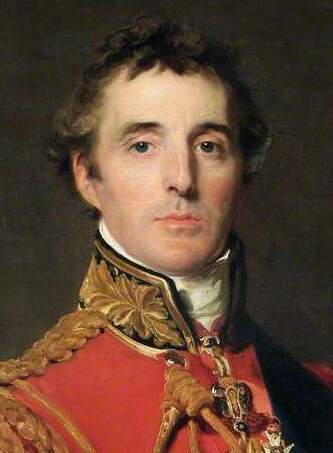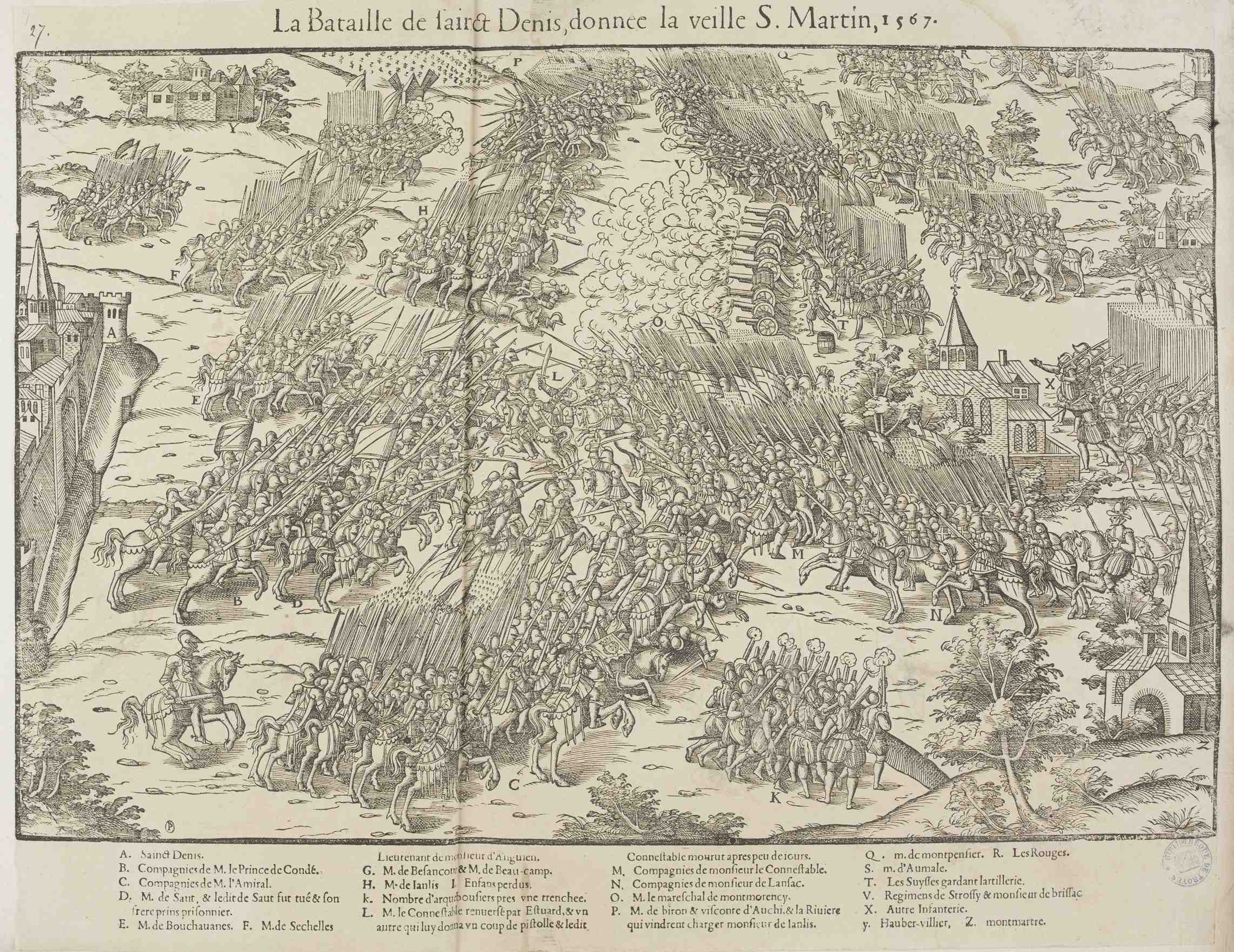|
Sir Paul Gore, 1st Baronet
Sir Paul Gore, 1st Baronet (1567 – September 1629) was an Anglo-Irish politician, soldier and baronet. Born in London, he was the eldest son of Gerard Gore and his wife Helen Davenant, daughter of Ralph Davenant. Gore had come to Ireland as a commander of a troop of horse and, in 1602, he was despatched to accompany the 1st Earl of Tyrconnell to a meeting with Queen Elizabeth I of England. He sat as Member of Parliament (MP) in the Irish House of Commons for Ballyshannon from 1613 until 1615. On 2 February 1622, he was created a baronet, of Magherabegg, in the County Donegal. He married Isabella Wycliffe, daughter of Francis Wycliffe and niece of the 1st Earl of Strafford. They had thirteen children, seven daughters and six sons. Gore was buried at the Abbey Church of Donegal. His eldest son Ralph succeeded to the baronetcy and was an ancestor of the Earl of Ross. His son Arthur was himself created a baronet and was an ancestor of the Irish creation of the Earls of Arra ... [...More Info...] [...Related Items...] OR: [Wikipedia] [Google] [Baidu] |
Anglo-Irish
Anglo-Irish people () denotes an ethnic, social and religious grouping who are mostly the descendants and successors of the English Protestant Ascendancy in Ireland. They mostly belong to the Anglican Church of Ireland, which was the State religion, established church of Ireland until 1871, or to a lesser extent one of the English Dissenters, English Dissenting churches, such as the Methodism, Methodist Church, though some were Catholic Church, Catholics. They often defined themselves as simply "British", and less frequently "Anglo-Irish", "Irish" or "English". Many became eminent as administrators in the British Empire and as senior Irish military diaspora#Britain, army and naval officers since the Kingdom of England and Kingdom of Great Britain, Great Britain were in a real union with the Kingdom of Ireland for over a century, before politically uniting into the United Kingdom of Great Britain and Ireland in 1801. The term is not usually applied to Presbyterianism, Presbyteri ... [...More Info...] [...Related Items...] OR: [Wikipedia] [Google] [Baidu] |
Baron Harlech
Baron Harlech, of Harlech in the County of Merioneth, is a title in the Peerage of the United Kingdom. It was created in 1876 for the Conservative politician John Ormsby-Gore, with remainder to his younger brother William. He had previously represented Carnarvon and North Shropshire in the House of Commons. Ormsby-Gore was the eldest son of William Ormsby-Gore, Member of Parliament for County Leitrim, Carnarvon and North Shropshire, and the great-great-great-grandson of William Gore, third and youngest son of Sir Arthur Gore, 1st Baronet, of Newtown, second son of Sir Paul Gore, 1st Baronet, of Magharabag, whose eldest son Paul was the grandfather of Arthur Gore, 1st Earl of Arran. Lord Harlech was succeeded according to the special remainder by his brother William, the second Baron. He was a former Conservative Member of Parliament for County Sligo and County Leitrim and also served as Lord Lieutenant of County Leitrim for many years. His son, the third Baron, represen ... [...More Info...] [...Related Items...] OR: [Wikipedia] [Google] [Baidu] |
16th-century English Soldiers
The 16th century began with the Julian year 1501 (represented by the Roman numerals MDI) and ended with either the Julian or the Gregorian year 1600 (MDC), depending on the reckoning used (the Gregorian calendar introduced a lapse of 10 days in October 1582). The Renaissance in Italy and Europe saw the emergence of important artists, authors and scientists, and led to the foundation of important subjects which include accounting and political science. Copernicus proposed the heliocentric universe, which was met with strong resistance, and Tycho Brahe refuted the theory of celestial spheres through observational measurement of the 1572 appearance of a Milky Way supernova. These events directly challenged the long-held notion of an immutable universe supported by Ptolemy and Aristotle, and led to major revolutions in astronomy and science. Galileo Galilei became a champion of the new sciences, invented the first thermometer and made substantial contributions in the fields of phy ... [...More Info...] [...Related Items...] OR: [Wikipedia] [Google] [Baidu] |
Politicians From London
A politician is a person who participates in policy-making processes, usually holding an elective position in government. Politicians represent the people, make decisions, and influence the formulation of public policy. The roles or duties that politicians must perform vary depending on the level of government they serve, whether local, national, or international. The ideological orientation that politicians adopt often stems from their previous experience, education, beliefs, the political parties they belong to, or public opinion. Politicians sometimes face many challenges and mistakes that may affect their credibility and ability to persuade. These mistakes include political corruption resulting from their misuse and exploitation of power to achieve their interests, which requires them to prioritize the public interest and develop long-term strategies. Challenges include how to keep up with the development of social media and confronting biased media, in addition to discrimi ... [...More Info...] [...Related Items...] OR: [Wikipedia] [Google] [Baidu] |
Irish MPs 1613–1615
Irish commonly refers to: * Someone or something of, from, or related to: ** Ireland, an island situated off the north-western coast of continental Europe ***Éire, Irish language name for the island and the sovereign state *** Erse (other), Scots language name for the Irish language or Irish people ** Republic of Ireland, a sovereign state ** Northern Ireland, a constituent unit of the United Kingdom of Great Britain and Northern Ireland * Irish language, a Celtic Goidelic language of the Indo-European language family spoken in Ireland * Irish English, set of dialects of the English language native to Ireland * Irish people, people of Irish ethnicity Irish may also refer to: Places * Irish Creek (Kansas), a stream in Kansas * Irish Creek (South Dakota), a stream in South Dakota * Irish Lake, Watonwan County, Minnesota * Irish Sea, the body of water which separates the islands of Ireland and Great Britain People * Irish (surname), a list of people * William Irish, pse ... [...More Info...] [...Related Items...] OR: [Wikipedia] [Google] [Baidu] |
Members Of The Parliament Of Ireland (pre-1801) For County Donegal Constituencies
Member may refer to: * Military jury, referred to as "Members" in military jargon * Element (mathematics), an object that belongs to a mathematical set * In object-oriented programming, a member of a class ** Field (computer science), entries in a database ** Member variable, a variable that is associated with a specific object * Limb (anatomy), an appendage of the human or animal body ** Euphemism for penis * Structural component of a truss, connected by nodes * User (computing), a person making use of a computing service, especially on the Internet * Member (geology), a component of a geological formation * Member of parliament * The Members, a British punk rock band * Meronymy, a semantic relationship in linguistics * Church membership, belonging to a local Christian congregation, a Christian denomination and the universal Church * Member, a participant in a club or learned society A learned society ( ; also scholarly, intellectual, or academic society) is an organizatio ... [...More Info...] [...Related Items...] OR: [Wikipedia] [Google] [Baidu] |
Baronets In The Baronetage Of Ireland
A baronet ( or ; abbreviated Bart or Bt) or the female equivalent, a baronetess (, , or ; abbreviation Btss), is the holder of a baronetcy, a hereditary title awarded by the British Crown. The title of baronet is mentioned as early as the 14th century; however, in its current usage it was created by James I of England in 1611 as a means of raising funds for the crown. Baronets rank below barons, but seemingly above all knights grand cross, knights commander and knights bachelor of the British chivalric orders, that are in turn below in chivalric precedence than the most senior British chivalric orders of the Garter and the Thistle. Like all British knights, baronets are addressed as "Sir" and baronetesses as "Dame". They are conventionally seen to belong to the lesser nobility, although William Thoms in 1844 wrote that: The precise quality of this dignity is not yet fully determined, some holding it to be the head of the , while others, again, rank Baronets as the ... [...More Info...] [...Related Items...] OR: [Wikipedia] [Google] [Baidu] |
17th-century Anglo-Irish People
The 17th century lasted from January 1, 1601 (represented by the Roman numerals MDCI), to December 31, 1700 (MDCC). It falls into the early modern period of Europe and in that continent (whose impact on the world was increasing) was characterized by the Baroque cultural movement, the latter part of the Spanish Golden Age, the Dutch Golden Age, the French '' Grand Siècle'' dominated by Louis XIV, the Scientific Revolution, the world's first public company and megacorporation known as the Dutch East India Company, and according to some historians, the General Crisis. From the mid-17th century, European politics were increasingly dominated by the Kingdom of France of Louis XIV, where royal power was solidified domestically in the civil war of the Fronde. The semi-feudal territorial French nobility was weakened and subjugated to the power of an absolute monarchy through the reinvention of the Palace of Versailles from a hunting lodge to a gilded prison, in which a greatly expan ... [...More Info...] [...Related Items...] OR: [Wikipedia] [Google] [Baidu] |
1629 Deaths
Events January–March * January 7 – Henry Frederick, Hereditary Prince of the Palatinate, the 15-year-old son of the German Palatinate elector, Frederick V, drowns in an accident while sailing to Amsterdam. * January 19 – Abbas the Great, one of the greatest rulers in Iranian history and the most powerful of the Safavid dynasty Shahs, dies after a reign of more than 40 years. * January 28 – Sam Mirza, son of the late Mohammad Baqer Mirza and grandson of Abbas the Great, is crowned as the new Shah of Persia and takes the regnal name Safi. * February 11 – Puritan migration to New England (1620–1640): Around 350 English Puritans on six ships, led by Francis Higginson in the '' Lyon's Whelp'', sail from Yarmouth, Isle of Wight, heading to the Massachusetts Bay Colony in America. They arrive on June 19. * March 4 – Massachusetts Bay Colony is granted a royal charter, and the colony is the first to be created in what will become th ... [...More Info...] [...Related Items...] OR: [Wikipedia] [Google] [Baidu] |
1567 Births
Year 1567 (Roman numerals, MDLXVII) was a common year starting on Wednesday of the Julian calendar. Events January–March * January 20 – Battle of Rio de Janeiro (1567), Battle of Rio de Janeiro: Portuguese forces under the command of Estácio de Sá definitively drive the French out of Rio de Janeiro. * January 23 – After 45 years' reign, the Jiajing Emperor, Zhu Houcong, dies in the Forbidden City of China. * January – A Spanish force under the command of Captain Juan Pardo (explorer), Juan Pardo establishes Fort San Juan (Joara), Fort San Juan, in the Native Americans in the United States, Native American settlement of Joara. The fort is the first European settlement in present-day North Carolina. * February 4 – Prince Zhu Zaiji, son of the Jiajing Emperor, becomes the ascends the throne of Ming Dynasty China as the Longqing Emperor. * February 10 – Henry Stuart, Lord Darnley, husband of Mary, Queen of Scots, is murder of Lord Darnley, m ... [...More Info...] [...Related Items...] OR: [Wikipedia] [Google] [Baidu] |






